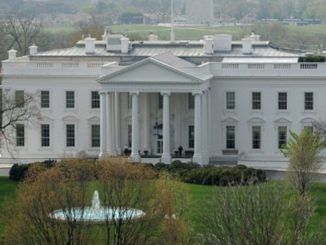
Experts are worried that the growing political polarization in the United States is a vulnerability that is used by foreign adversaries.
The indictment of 13 Russians, as part of special counsel Robert Mueller’s probe into allegations of collusion between Moscow and the 2016 Trump campaign, provided some kind of a relief to the rising threat but did not solve the problem.
The Hill reports that the Russian efforts, according to the indictment, were part of a broader effort “to sow discord in the U.S. political system,” achieved mostly by fanning the flames of divisive debates already raging in the country.
Officials from both parties agreed that the constant tearing of America’s political fabric provides an opening for Russia, or any other hostile power, to exploit.
“It’s just so easy in today’s polarized environment to take advantage of the biases that people have, and their addiction to social media, and their seeking out information that confirms their preconceived views,” said former Democratic Representative Jason Altmire.
Altmire, who served three terms in Congress, recently authorized a book on political polarization, called “Dead Center: How Political Polarization Divided America and What We Can Do about It.”
Former New Jersey Governor Christine Todd Whitman, a centrist Republican also expressed a similar view of the threat. “We can’t accept doing nothing, just shrugging our shoulders,” Whitman told The Hill.
She also added that in order to rebuff Russian efforts to meddle in future elections we need to provide states and localities with funding and training on how to recognise and deal with that kind of activities.
However, she said that with the media being so fractured, the broader shift toward the political extremes would be difficult to counteract.
Last month in a New York Times op-ed, former President Obama’s national security adviser Susan Rice said that “the most significant, long-term threat to our security may be our domestic political polarization.”
Adding that “we need to decide whether we want to remain the world’s pre-eminent power, a strong, cohesive beacon of democracy, or if we are content to allow our national autoimmune disorder, like a flesh-eating disease, to devour our body politic.”
According to The Hill, skeptics of the Russia story have noted that there is nothing particularly new or unusual about attempts by Moscow, or by other adversaries, to try to affect public opinion in the United States, just as Washington has meddled in other nation’s affairs for decades.




Be the first to comment